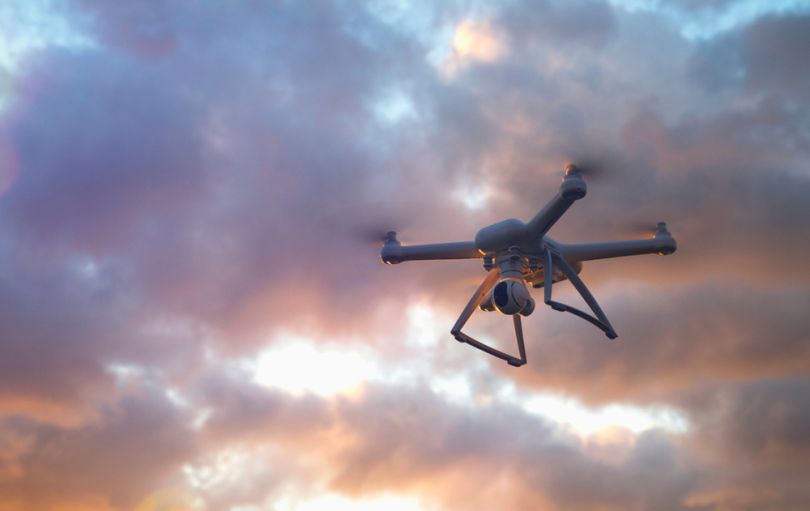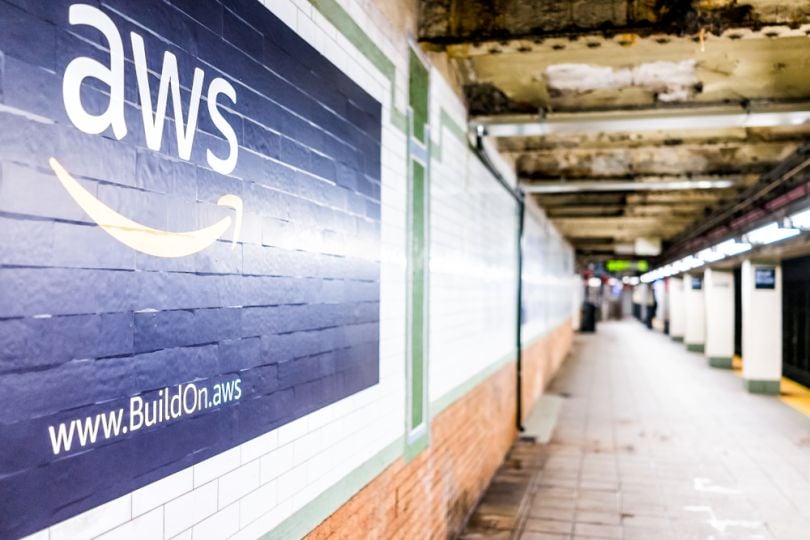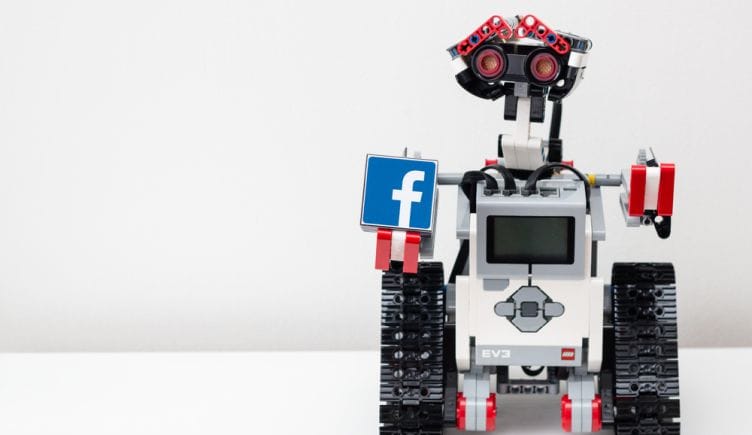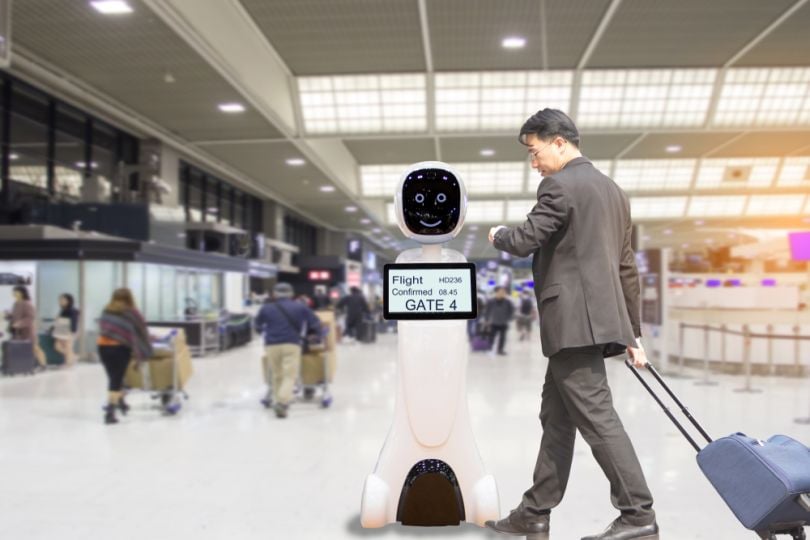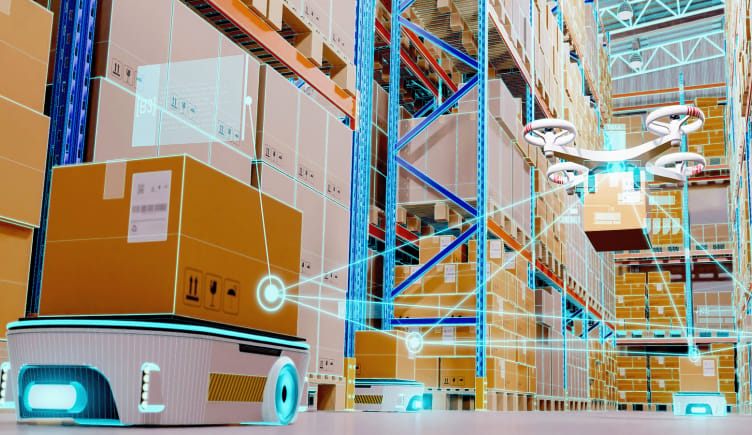 Image: Shutterstock
Image: Shutterstock
You’ve got your tuggers, your pickers and your stackers.
These autonomous mobile robots, known as AMRs for short, are performing simple tasks — often transporting goods and materials from point A to point B — everywhere from car factories to fulfillment centers.
What Is an Autonomous Mobile Robot?
What Is an Autonomous Mobile Robot?
An autonomous mobile robot is a robot that is able to navigate within, and respond to, its environment without humans directly controlling it.
Equipped with sensors so they can steer clear of obstacles, like humans and forklifts, and connect with other robots and networks, AMRs are preprogrammed before use — typically by mapping their working environment to create transport paths. They offer more flexibility than autonomous guided vehicles, which rely on track-like systems made of wires, magnets or lasers to move along a fixed route.
Benefits of Autonomous Mobile Robots
- Frees up human workers for other tasks.
- Increases productivity.
- Improves factory safety.
- Meets demand for labor.
- Takes up less space than autonomous guided vehicles.
AMRs work everywhere from warehouses and other logistics facilities like fulfillment centers, to manufacturing and production centers, and even construction sites. They also work in homes vacuuming floors, and in the sky where they’re delivering food, groceries and other retail items.
More on RobotsIs the Construction Industry Ready to Embrace Robots?
Types of Autonomous Mobile Robots
While many AMRs are used in the service sector where they’re disinfecting high-touch areas, serving drinks in casinos or delivering room service in hotels, they’re making the biggest impact behind the scenes working in industries like logistics, manufacturing, packaging and e-commerce.
Industries That Use Autonomous Mobile Robots
- Logistics
- Manufacturing
- E-Commerce
- Hospitality
Here are a few of the most common types in operation today:

Picking Robots
These AMRs follow a goods-to-person operation model, transporting goods and materials from one location to another where humans can pick and fulfill orders. Picking robots eliminate much of the walking associated with human-led order fulfillment, delivering items a worker needs when they need it, boosting productivity and increasing efficiency.
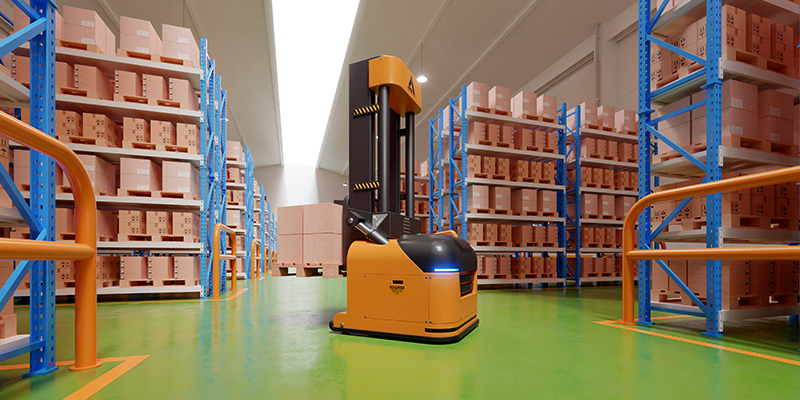
Self-Driving Forklifts
Often found in warehouses moving and stacking pallets and other items, self-driving forklifts are another common AMR operating in the logistics industry where they play a key role in managing storage space. They’re also playing a crucial role in an industry struggling to find workers. “Demand for logistics help is soaring, but forklift operators and other skilled workers are in short supply,” Joann Muller wrote in a recent Axios article. “Robotic vehicles are one way that manufacturers and logistics companies can address labor shortages while running their operations more safely and efficiently.”
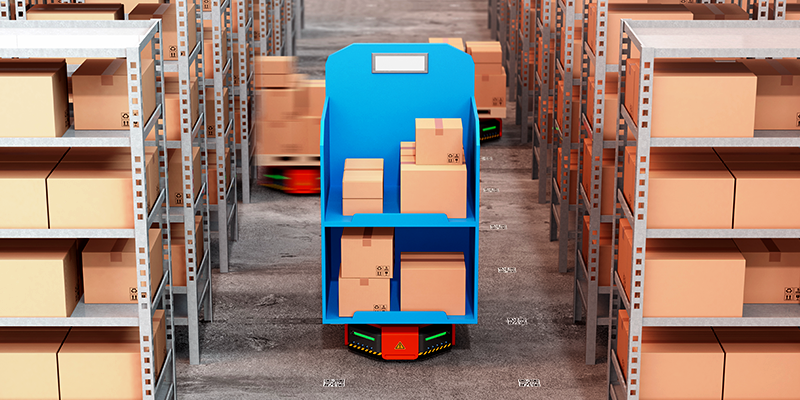
Autonomous Inventory Robots
Many of these robots help companies manage their inventory by tugging materials and goods quickly and safely. Paired with RFID tags, a wireless tracking device that can be attached to supplies and products, these robots can navigate storage areas to help companies keep better track of inventory.
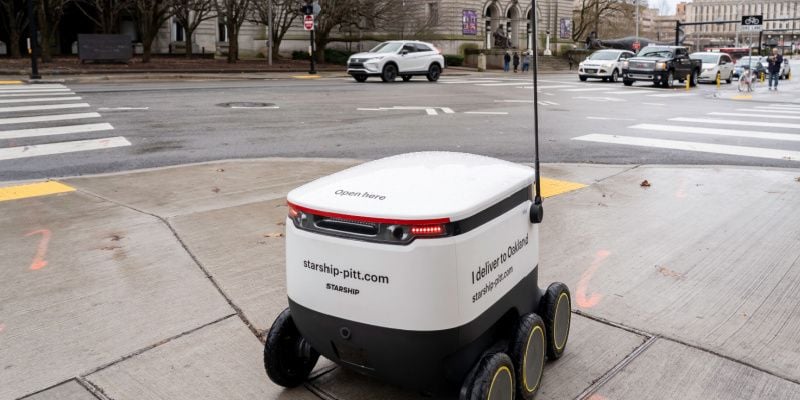
Delivery Robots
From hot plates to packages, delivery AMRs are gaining popularity, with the industry set to reach $1.8 billion in value by 2028. Some delivery robots may come in the form of drones or compact vehicles with secure compartments. These robots are typically used for last-mile delivery or curbside pickup for things like food orders, groceries and packages
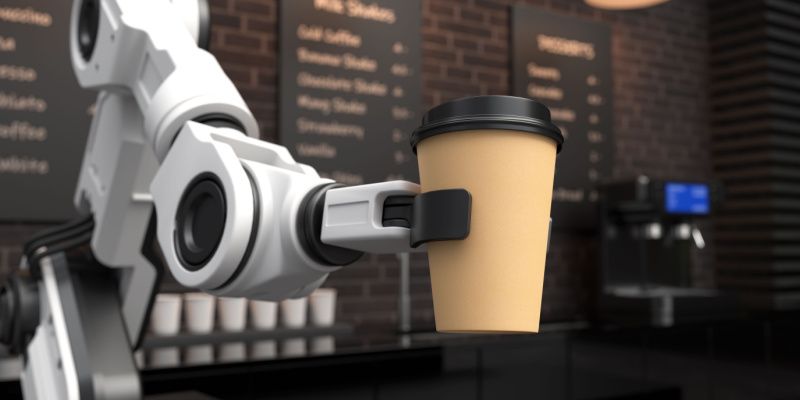
Hospitality Robots
Restaurants and hotels can reap the benefits of autonomous mobile robots too. AMRs in these industries are typically used for delivering food to tables in restaurants, cleaning floors in hotels and even making deliveries to guests’ rooms. Although these robots are still somewhat niche, future innovations may help them become more mainstream.
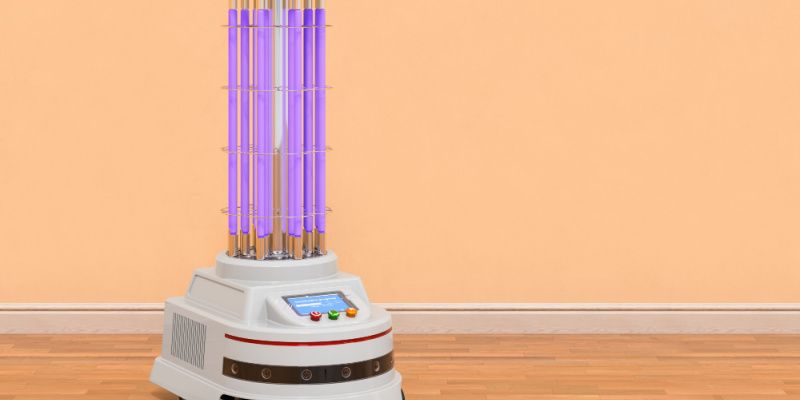
Disinfection Robots
Autonomous mobile robots can help keep healthcare spaces clean. UV disinfection robots travel through hospital corridors and rooms to sanitize high-touch surfaces like light switches, door handles and assistive rails with special UV light bulb attachments to kill bacteria, viruses and germs.
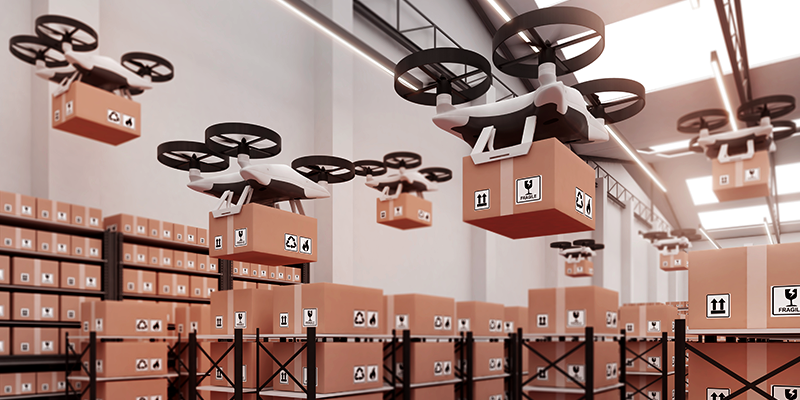
Drones
Unmanned aerial vehicles, or drones, can work as autonomous mobile robots, too. As AMRs, they’re typically found inspecting hard-to-reach areas like dams and other infrastructure, conducting surveillance or helping out in search and rescue operations. In some areas, you may even see them flying through the air delivering food and other items.
As autonomous mobile robots continue to expand their reach in industries ranging from logistics and manufacturing to hospitality and healthcare, here are a few companies that will continue to push AMRs to the next level.
Autonomous Mobile Robot Companies to Know

ABB
Location: Fully Remote
Working everywhere from e-commerce warehouses to automotive assembly lines, ABB’s autonomous mobile robots are able to help companies manage their storage and transport materials more efficiently. In 2021, ABB acquired ASTI, a leading AMR company, and recently rebranded and launched their AMRs line as Flexley. ABB’s offerings include Flexley Tug, which is used in assembly applications, like bringing a car chassis into a robot cell; Flexley Mover, which is used for delivering racks, boxes and containers in tight spaces; and Flexley Stack, a mobile robotic forklift that can move pallets and containers for shipping and receiving and production line applications.

Aethon
Location: Pittsburgh, Pennsylvania
Outfitted with biometric security and pin code access, Aethon’s TUG autonomous robot is working across healthcare settings — including 37 veterans affairs hospitals — securely transporting critical care needs like medication, lab specimens and surgical supplies. TUG also delivers food and linens to patients. In hotels and other hospitality settings, TUG delivers luggage and room service to guests, and works with housekeeping and transports large deliveries to banquet halls. TUG can even operate a hotel’s elevators, open doors and pick up dirty sheets and bedding.

Blue Ocean Robotics
Location: Fully Remote
Blue Ocean Robotics’ UVD cleaning and disinfecting robot works in high-traffic and high-touch areas like offices, hospitals, airport bathrooms, schools and retail stores. By emitting UV-C, or shortwave light, it’s able to kill bacteria by damaging their DNA and RNA.

Dusty Robotics
Location: Mountain View, California
Working in the construction industry, Dusty Robotics’ FieldPrinter is able to print layouts for different projects ranging from parking garages and data centers to hospitals and office buildings, a job that traditionally involves humans and chalk lines. The FieldPrinter is able to print precise layouts on concrete, plywood subfloors and asphalt and even adds text labels to printed layouts to ensure important design information doesn’t go unnoticed.
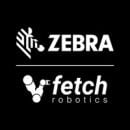
Fetch Robotics
Location: San Jose, California
Acquired by Zebra in 2021, Fetch Robotics’ autonomous mobile robots can be found in manufacturing facilities and fulfillment and distribution centers where they’re delivering material, picking orders and managing storage space. The company’s line of AMRs include its Pick-to-Robot, which works in e-commerce fulfillment centers moving from one worker to another to receive items before transporting them to a consolidation area. The company has also developed a disinfecting AMR that eliminates harmful bacteria and viruses through fogging and UV light.

Husarion
Location: Fully Remote
For businesses that want to have a hand in the design of their own AMRs, Husarian offers software and robotic plans for customized development, allowing clients to make modifications based on use case. Husarian’s Panther platform, for example, is designed for use outdoors in applications ranging from agriculture, rescue and inspection. It features LIDAR technology for navigation as well as GPS and other features — like robotic arms — can be added.
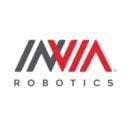
inVia Robotics
Location: Westlake Village, California
InVia Robotics’ Picker robots retrieve and move items using an extendable lift to reach higher shelves and an industrial suction cup to grip goods. It’s able to carry a payload up to 40 pounds and has a reach of eight feet. Self-charging with lighting technology built in, the company’s Picker robots can travel at a maximum speed of 5 miles per hour and have a battery life of 10 hours. InVia also uses a robotics-as-a-service business model, leasing their robots to companies, which reduces initial investment costs for clients.
More on RobotsRobots Aren’t Just for High-Tech Labs and Heavy Industry Anymore. And That’s a Good Thing.

iRobot
Location: Bedford, Massachusetts
IRobot is one of the most well-known robotics companies. The maker of the Roomba, a robot vacuum cleaner, iRobot had 17.6 million connected customers in 2022 and has sold more than 40 million Roombas over the course of the company’s lifetime. In the last two decades, iRobot’s technology has evolved so that the Roomba can identify areas in a home that are especially dirty so it can clean even more thoroughly, and it’s able to avoid objects and let owners know about any hazards the robot encounters. Amazon made a bid to acquire iRobot, though the deal is being investigated by the Federal Trade Commission.

Locus Robotics
Location: Wilmington, Massachusetts
Used by companies like DHL and VF Corporation, the line of AMRs from Locus Robotics — which include Origin, Vector and Max — is used in settings ranging from warehouses and to industrial and manufacturing facilities. Origin, which can be used to transport up to 80 pounds of goods in bulk bins and shipping boxes, is customizable for different levels of shelving. It uses LIDAR and vision technology for navigation, plus features eight sensors and cameras along with a tablet-based interface. Vector, which is used for picking and transport applications, has a secure shelf system and can carry up to 600 pounds. Meanwhile Max, which can carry up to 3,000 pounds, is designed to transport pallets and other irregular material.

MHS Global
Location: Mount Washington, Kentucky
Having merged with Fortna, a software company, MHS Global continues to provide AMRs for e-commerce, manufacturing and other industries. Its robots specialize in picking and transporting bulky items that conveyor belts can’t. They can also be modified with robotic arms for specialty applications and are able to return on their own to docking stations for recharging.

Milvus Robotics
Location: Fully Remote
Milvus Robotics’ AMRs are designed to work alongside people, helping them transport goods and materials in warehouses and factories. The company’s SEIT line of AMRs can transfer materials weighing up to 1,500 kilograms. Its disinfecting AMR, which utilizes mapping-based navigation, is being used in research labs and hospitals to eliminate viruses and bacteria in high-touch areas.
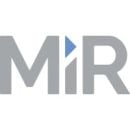
Mobile Industrial Robots
Location: North Reading, Massachusetts
A subsidiary of the automation company Teradyne, AMRs from Mobile Industrial Robots are designed for logistics and manufacturing facilities, working with companies like IKEA and Novo Nordisk in China. The company, which merged with AutoGuide Mobile Robots, now also offers “heavy payload” AMRs like the AutoGuide MAX-N Tugger, which is capable of transporting payloads up to 15,000 pounds.

OTTO Motors
Location: Fully Remote
AMRs developed by OTTO Motors are designed to transport goods and materials between people, racks, shelving and other equipment. The company worked with Mauser Packaging Solutions, a global packing company, replacing its old AGV system with the OTTO 1500 in a few of their facilities. At one facility, Mauser reported being able to shift three employees to focus on more important tasks and improved safety since manual forklift traffic was reduced. It has also increased throughput — by 600 percent — at another facility.
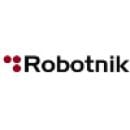
Robotnik Automation
Location: Fully Remote
Robotnik designs and develops AMR platforms for research and transport, including a mobile robot car, dubbed RB-CAR, which is typically used for surveillance, autonomous driving research or to simply transport people and goods. It can be programmed to operate autonomously or remotely with a joystick or steering wheel. The car is also customizable with sensors, 3D LIDAR and other laser types. Robotnik’s line of AMRs also includes the RB-VOGUI, which is geared more toward work in logistics, though it can work outdoors — on farms, for example.

Skydio
Location: Redwood City, California
Drone manufacturer Skydio develops autonomous drones used in applications ranging from inspection and security to construction site mapping. Their X2 drone uses GPS navigation and is equipped with strobe lighting, six navigation cameras and onboard artificial intelligence capabilities. With a 35-minute flight time, the X2 can also be used for search and rescue, intelligence and incident response applications.
More on Unmanned Aerial VehiclesIs Drone Delivery on the Horizon?
Starship Technologies
Location: San Francisco, California
Starship Technologies produces autonomous delivery robots for carry-out food, groceries and small packages. The company even has its own food delivery app where customers can order from local restaurants. Starship delivery can be found in 30 locations and has completed over 4 million autonomous deliveries, according to its website.

Syrius Robotics
Location: Fully Remote
Syrius Robotics works with companies like DHL and CJ Logistics to help them save and manage storage space by using robots. Their FlexComet and FlexSwift AMRs specialize in moving goods like clothing and footwear, as well as furniture and home accessories for e-commerce companies. The FlexComet is designed to work in 5,000-square-foot warehouses. Typically one human worker can manage three or four of the company’s AMRs, according to the company’s website.
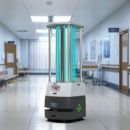
Techmetics Robotics
Location: Santa Clara, California
AMRs developed by Techmetics Robotics are working in healthcare, assisted living facilities and hotels. In casinos, the company’s AMRs are able to carry and deliver valuable chips and cards. For added security, the robot features three-layer compartments. The company’s Techi Food Cart and Techi Drink Serve also deliver food and drinks to gamblers. There’s even a Techi Concierge that guides gamblers to tables and makes reservations. In hotels and other hospitality settings, the Techi Concierge is able to sell tickets, answer questions and offer instructions for specific tasks.
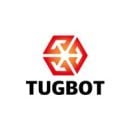
TUGBOT
Location: Fully Remote
TUGBOT is deploying its AMRs to pull carts, trolleys and dollies loaded across warehouses, construction sites and other logistics facilities. Having the ability to attach to a variety of wheeled vehicles, TUGBOT and TUGBOT 2 offer greater flexibility with very little human assistance or guidance. The TUGBOT 2 has a carry capacity of 250 kilograms — with a pull force capacity up to 600 kilograms — and can work continuously for close to eight hours.

Youibot Robotics
Location: Fully Remote
AMRs developed by Youibot are operating in a number of industrial logistics settings, including an interior trim factory for cars. At the factory, three AMRs with lifting capabilities have been deployed along with five robots to manage storage and three to transport boxes. As a result, the factory has doubled storage capacity, reduced the amount of walking employees have to do. Youibot AMRs have also been deployed at a device manufacturer where they’ve provided labor cost saving equivalent to 20 employees and increased production efficiency by a third, according to the company’s website.
If the website content violates your rights, please contact us to delete it。



